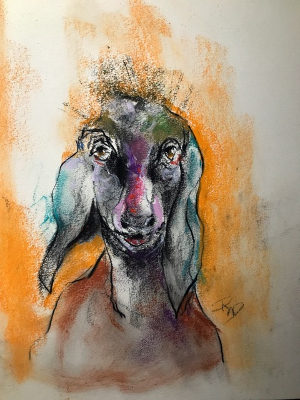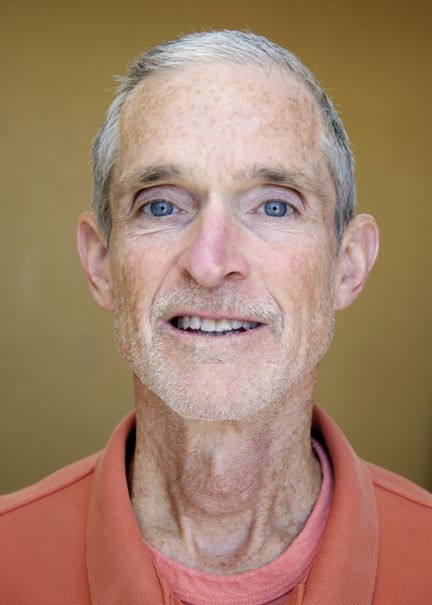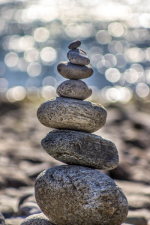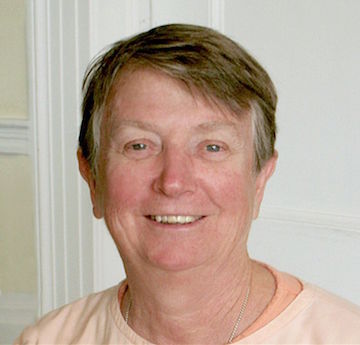Why Now is the Time for Yoga
by Reverend Jaganath Carrera
This past year has magnified the uncertainty of life. Things can change at any minute, and because of that precariousness, people experience stress and worry. Watching the world shut down and start back up was shocking and unexpected. For many people, it has at best created a sense of mistrust, and at worst, exasperated issues related to basic safety and wellbeing.
As yogis, we are in a position to lift that heaviness. We have access to a wide array of practices and techniques that are designed to help us overcome suffering and persevere to liberation. These secrets are taught through lineages of thought, from saints and sages throughout the ages; many of them are at our fingertips!
Gurudev Swami Satchidananda Himself has plenty of his talks online, and He trained many of his disciples who continue to share the practices and benefits of the many facets of Yoga. In the spirit of that, let’s focus on three words from Patanjali’s Yoga Sutras, which together explain Why Now is the Time for Yoga.
Nirodha: Stilling, restraint, cessation.
Every effort in the practice of Yoga is nirodha, which cultivates and cumulates as the ultimate goal of Self-realization. Nirodha is a turning towards the truth, a rooting down to rise up. The word is introduced in Yoga Sutra 1.2, as it refers to both the process and attainment of calming the mind. By nirodha, and in nirodha, “Yoga ends the misperception that the Seer/Self is the same as the mind’s usual tangle of whirling excursions of thought” (Inside Patanjali’s Words).
This is a teaching that has stood the test of time, and it is needed today. The opposite of nirodha is vyutthana, which is an externalization of consciousness. We have a lot of people living with their awareness outside, rather than looking inside to discover the great liberation of Self. We can see how this can become an issue, especially if we reflect on the past year. The COVID-19 pandemic demonstrated the impermanence of what exists outside of us, but it did not shake the truth of the Self that lies within.
Dukha: suffering, pain, sorrow, grief.
Even those with strong practices were disrupted or disturbed during the quarantine period. Businesses were closing down, families were keeping their distance, and essential workers were afraid for their lives. For a moment, the whole world was living in a shared dukha. This word appears in the second chapter of the Yoga Sutras, and there really is no English word that does it justice.
Dukha is like a “persistent, pervasive feeling of precariousness”(Inside Patanjali’s Words). It’s the existential angst that Carl Jung describes – a feeling that the other shoe is always going to drop. Most of us can more readily relate to that now because of the magnified uncertainty of the pandemic. However, it is part of the human condition to live with some degree of dukha. In fact, it’s often what leads us to Yoga: we are seeking to escape the whirling and twirling of our own minds. We do not want to live in constant fear, and we do not need to. Given the shared trauma of humanity, there truly is an increase in the need for these teachings and practices to bring peace and harmony.
Viveka: discriminative discernment.
Patanjali tells us that life is dukha, and anyone who really looks at it will see that. That is often what our minds get caught up in, and it perpetuates those whirling excursions of thought. However, for those who choose to see clearly, this sense of suffering can be transcended. Patanjali introduces the word viveka right after dukha, as a solution. Viveka is “discrimination between the Real and the unreal, Permanent and impermanent, and the Self and the non-Self– a state of ever-present discrimination between that which changes and that which does not.” (Inside Patanjali’s Words).
It sounds pretty good, doesn’t it? It takes practice, patience and compassion. Viveka is a by-product of nirodha, both of which enlighten the heart and the mind. Viveka allows us to make decisions that are aligned with the Self, strengthening our ability to identify with the Self, rather than the whirling excursion that distracts us. In a world that is arguing over which way is up and which way is down, now more than ever – we need to seek and find the truth.
There is urgency in sharing this, because the suffering is so heavy. Many people do not know what to do. As yogis, we have the solution to dukha. We can be the light. Through nirodha, we lift the world as we align with the Self. With viveka, the light of truth shines through the yogis, guiding those who are lost. It is a much-needed remedy for the suffering of humankind, and that is Why Now is the Time for Yoga.
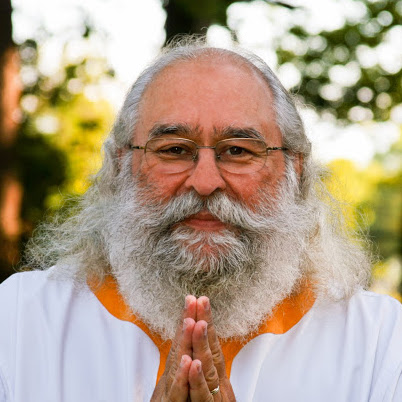 Reverend Jaganath Carrera has shared the joy and wisdom of the Yoga Sutras with thousands of students since 1975. A direct disciple of Sri Swami Satchidananda, he is the founder and spiritual head of the Yoga Life Society and author of the highly regarded Inside the Yoga Yoga Sutras: A comprehensive Sourcebook for the Study and Practice of Patanjali’s Yoga Sutras and Awaken: Inside Yoga Meditation. He has taught all facets of Yoga since 1975 at universities, prisons, Yoga centers, and interfaith programs. In 1980, under the guidance of Sri Swami Satchidananda, he established the Integral Yoga Ministry and in 2006, the Yoga Life Ministry-ministries that are rooted in the full spectrum of the theories and practices of the major branches of Yoga, and in living a life of selfless service to all.
Reverend Jaganath Carrera has shared the joy and wisdom of the Yoga Sutras with thousands of students since 1975. A direct disciple of Sri Swami Satchidananda, he is the founder and spiritual head of the Yoga Life Society and author of the highly regarded Inside the Yoga Yoga Sutras: A comprehensive Sourcebook for the Study and Practice of Patanjali’s Yoga Sutras and Awaken: Inside Yoga Meditation. He has taught all facets of Yoga since 1975 at universities, prisons, Yoga centers, and interfaith programs. In 1980, under the guidance of Sri Swami Satchidananda, he established the Integral Yoga Ministry and in 2006, the Yoga Life Ministry-ministries that are rooted in the full spectrum of the theories and practices of the major branches of Yoga, and in living a life of selfless service to all.
About Inside Patanjali’s Words
From the author of Inside the Yoga Sutras, comes a new and unique study guide for all who are interested in a deeper dive into the Yoga Sutras. Reverend Jaganath Carrera breaks down each of Patanjali’s words so the reader can further grasp the richness and depth of meaning in each of the Sanskrit words. As each word is unpacked, new levels of understanding behind each sutra are revealed.
Available through IYI Distribution: https://new.iydistribution.com/inside-patanjali-s-words.html


